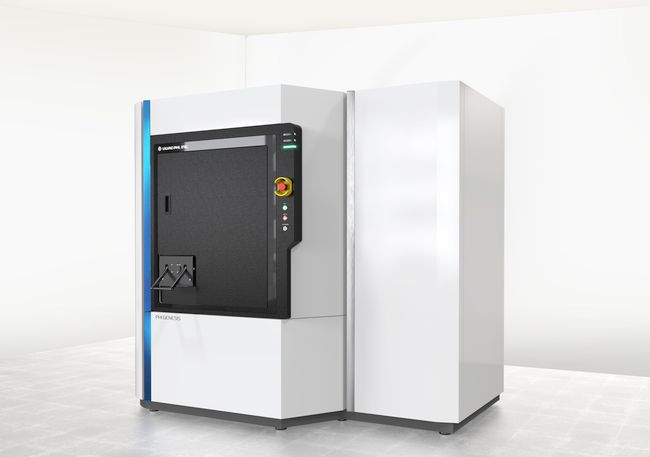- ULVAC-PHI integrates every surface analysis technology which is essential for battery research and development into an advanced automated platform to contribute to battery performance and longevity through thin film and interface characterizations.
ULVAC-PHI Incorporated has launched the PHI GENESIS, an automated and multi-function scanning X-ray photoelectron spectrometer (XPS: X-ray Photoelectron Spectroscopy or ESCA: Electron Spectroscopy for Chemical Analysis). The PHI GENESIS is the united model of PHI’s multi-functional scanning XPS instruments and was designed for automation and simplified operation.

Background
Advanced materials such as all-solid-state batteries, advanced semiconductors, and artificial photosynthesis are complex combinations of materials, and their research and development require speed in optimizing the performance of each material as well as the combination of materials. There is a growing need for high-performance and highly functional surface and interface analysis that can dramatically accelerate such research and development. ULVAC-PHI begins offering a new surface analysis system that not only offers extremely high basic performance but also a high degree of automation to meet the various individual requirements of worldwide customers. The solution is the new “PHI GENESIS” scanning X-ray photoelectron spectrometer (XPS) from ULVAC-PHI.
Summary
The “PHI GENESIS” XPS is a new product that combines the core “GENESIS” of the PHI surface analysis instruments, which has a 50-year tradition of advanced automation and reduced analysis time, with expandability, and offers overwhelming basic performance in a compact housing.
The “PHI GENESIS” XPS provides high-speed, high-sensitivity, and overwhelming micro XPS analysis performance with automated multi-sample analysis with automatic sample exchange. A high-sensitivity analyzer with an improved counting rate also contributes to high performance. To date, ULVAC-PHI and Physical Electronics USA, a subsidiary of ULVAC-PHI, have developed various world-first XPS analysis technologies including scanning micro XPS and HAXPES (hard x-ray photoelectron spectroscopy), fully automated robotics XPS analysis, full-automatic insulator neutralization analysis, depth profiling of organic materials using cluster etching ion gun. All of these technologies are incorporated into a single instrument, making it possible to provide state-of-the-art XPS analysis technology for all kinds of materials, including metals, semiconductors, ceramics, and organic materials.
Another novel feature of PHI GENESIS is a new software package designed for ease of use and designed for all levels of users, from surface analysis beginners to well-trained scientists, from manufacturing to cutting-edge research and development. We have also prepared several options that allow customers to perform advanced analyses that previously required sophisticated analytical equipment such as a large synchrotron in a typical laboratory environment.
PHI GENESIS is fully compatible with the analysis of today’s most advanced composite solid materials and composite solid devices and aims to dominate the global market as an indispensable analytical instrument for speeding up research and development.
About ULVAC-PHI, Incorporated
ULVAC-PHI, Incorporated was founded in 1982 and provides advanced surface analysis instruments to universities and leading-edge industries worldwide for research and development. The company provides comprehensive surface analysis technology-based solutions for materials and devices including metals, polymers, semiconductors, batteries, organic and inorganic devices and microelectronics. For more information, visit https://www.ulvac-phi.com/en/.
X-ray photoelectron spectroscopy (XPS)
XPS (X-ray Photoelectron Spectroscopy) is one of the most popular surface chemical analysis techniques that can provide chemical information on the top few atomic layers of a solid surface. XPS can provide qualitative and quantitative chemical information on solid surfaces by evaluating the energy and intensity of X-ray-induced electrons (photoelectrons). XPS is provided to universities and industrial research facilities as well as for quality control and quality assurance purposes, as it shows excellent features for the analysis of surface and interface phenomena such as coloration, adhesion, sliding, catalyst, thin-film interfaces and electrical contacts.
For inquiries regarding this matter, please contact
Product Strategy Department, ULVAC-PHI Corporation
TEL: +81-467-85-4220 (Sales)
Related website
https://www.ulvac-phi.com
https://www.surf-analysis.com
